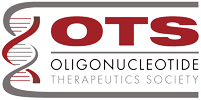Using CRISPR to Personalize Cancer Immunotherapy Treatment
In 2020, there were an estimated 18.1 million cases of cancer worldwide (excluding non-melanoma skin cancer). Breast, lung, and colorectal cancer were the most common and together contributed to 35.4% of these cases. In the same year, 9.5 million cancer-related deaths were reported. According to the NIH, by 2040, it is expected that there will be 29.5 million new cases ...
Will N-of-1 Drugs Play a Role in the Future of Medicine?
Throughout the millennia, anyone who had anything beyond a simple illness could only do their best to ease the pain and petition whatever deities their culture believed in. Then, in the past few centuries, medicine and science have advanced to the point that many illnesses and diseases can be successfully treated. Unfortunately, rare diseases have not been given the ...
Centyrins Effectively and Safely Deliver siRNAs to Multiple Muscle Tissues
In 2018, Susan Dillon and Karyn O'Neil knew they had created something special that could change the treatment of genetic diseases. Now, their company’s drug that uses their proprietary technology has been granted orphan drug status by the U.S Food and Drug Administration (FDA). The drug, ABX1100, is designed to treat the debilitating genetic condition called Pompe disease. What ...
Reflections following the 20th annual meeting on oligonucleotide therapeutics
Footnote from title: modified slightly from “A brief history of oligonucleotide therapeutics” in the Timmerman Report, copyright 2022, and reprinted with permission. A Brief History of Oligonucleotide Therapeutics About 50 years ago, several scientists independently conceived of the idea of blocking gene expression with synthetic DNA or RNA “antisense” oligonucleotides (ASO) designed to bind specifically to complementary “sense” mRNA ...
2022 Annual Meeting Highlights
We truly enjoyed meeting in person again this year and hope those of you who were able to attend enjoyed it as well. We want to share interesting highlights from a few of the sessions. If you missed a talk or want to go back and review any of the speakers, sessions, or posters, they all will remain online ...
Eplontersen May Soon Provide Another Safe, Effective Treatment for People Diagnosed with ATTR
People who have been diagnosed with hereditary transthyretin amyloidosis (ATTRv) may soon have the option of choosing another safe, effective therapy, one that significantly improves quality of life, according to patients who received it in the clinical trial. ATTRv is a progressive, debilitating, fatal disease in which amyloids form when abnormal transthyretin proteins are produced and misfold. The ...
Using CRISPR to Personalize Cancer Immunotherapy Treatment
In 2020, there were an estimated 18.1 million cases of cancer worldwide (excluding non-melanoma skin cancer). ...
Will N-of-1 Drugs Play a Role in the Future of Medicine?
Throughout the millennia, anyone who had anything beyond a simple illness could only do their ...
Centyrins Effectively and Safely Deliver siRNAs to Multiple Muscle Tissues
In 2018, Susan Dillon and Karyn O'Neil knew they had created something special that could ...
Reflections following the 20th annual meeting on oligonucleotide therapeutics
Footnote from title: modified slightly from “A brief history of oligonucleotide therapeutics” in the Timmerman ...
2022 Annual Meeting Highlights
We truly enjoyed meeting in person again this year and hope those of you who ...
Eplontersen May Soon Provide Another Safe, Effective Treatment for People Diagnosed with ATTR
People who have been diagnosed with hereditary transthyretin amyloidosis (ATTRv) may soon have the option ...














